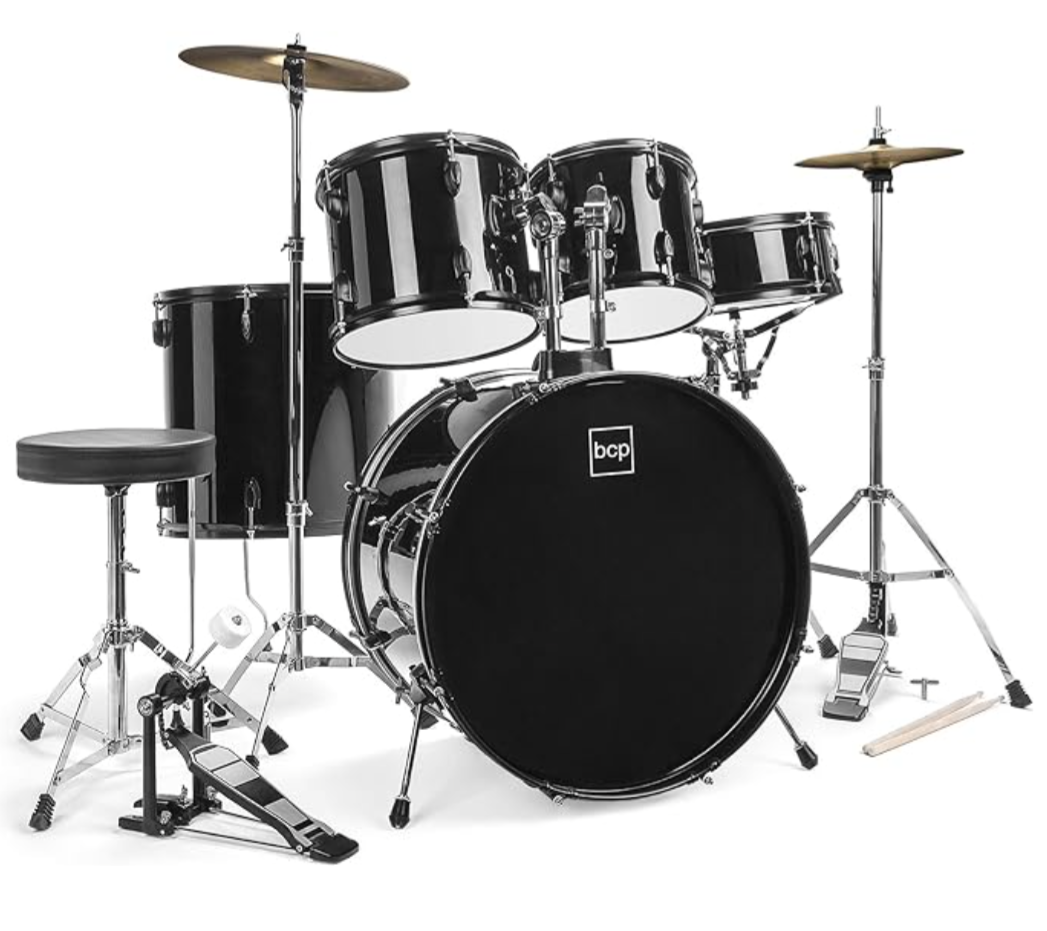Have you always dreamed of rocking out on the drums but don’t know where to start? Learning drums for beginners can seem daunting, but with the right guidance and dedication, anyone can master this powerful instrument. Whether you’re a music enthusiast, an aspiring drummer, or a complete beginner, this guide will provide you with everything you need to kickstart your drum learning journey. From understanding the basics to exploring advanced techniques, we’ve got you covered.
Why Drumming is a Must-Try
Drumming is more than just banging on some skins; it’s an exhilarating way to express yourself, relieve stress, and even boost your brainpower. Studies show that playing the drums can improve cognitive functions, enhance coordination, and promote emotional well-being. For beginners, drumming offers an accessible entry point into the world of music, with many resources available to help you learn and grow.
Understanding Your Drum Kit
Before you start drumming, it’s essential to understand the different components of a drum kit. A standard drum set comprises the bass drum, snare drum, hi-hat, toms, and cymbals. Each part has its role and produces distinct sounds that contribute to the overall rhythm. Familiarizing yourself with these elements will make your learning process smoother and more enjoyable.
Bass Drum
The bass drum, operated by a foot pedal, provides the foundation of your beats. It’s the largest drum in the kit and produces a deep, resonant sound.
Snare Drum
The snare drum sits between your legs and is played with sticks. It has a bright, sharp sound that cuts through the mix and is often used for accents and backbeats.
Hi-Hat
The hi-hat consists of two cymbals mounted on a stand, operated by a foot pedal. It can be played open or closed, offering a range of sounds from crisp to splashy.
Getting Started with Drum Pads
If you’re not ready to invest in a full drum kit, starting with a drum pad is a great alternative. A drum pad allows you to practice your skills without the need for a complete setup. Amazon carries beginner drum pads and sticks for beginning learners, making it easy to get started without breaking the bank. Check this Drum Pad out.
Basic Techniques to Master
Mastering the basics is crucial for any beginner drummer. Here are some fundamental techniques you should focus on:
Grip
How you hold your drumsticks can significantly impact your playing. There are two main grips – matched grip and traditional grip. Most beginners start with the matched grip, where both hands hold the sticks the same way.
Strokes
Learning the different types of strokes, such as single strokes, double strokes, and paradiddles, will form the foundation of your drumming skills. These strokes are essential for building speed, control, and precision.
Posture
Proper posture is vital to avoid fatigue and injury. Sit up straight, keep your feet flat on the floor, and ensure your drum kit is positioned comfortably within reach.
Developing Your Sense of Rhythm
A strong sense of rhythm is essential for any drummer. Practice playing along with a metronome to develop your timing and consistency. Start with simple beats and gradually increase the complexity as you become more comfortable.
Exploring Online Resources
In today’s digital age, there are countless resources available to help you learn drums online. Websites, YouTube channels, and apps offer tutorials, backing tracks, and lessons tailored for beginners. Some popular platforms include Drumeo, Mike Johnston’s lessons, and Vic Firth’s educational resources.
Joining a Drumming Community
Joining a community of fellow drummers can provide support, motivation, and valuable insights. Online forums, social media groups, and local music clubs are great places to connect with other drummers, share experiences, and seek advice.
Investing in a Quality Drum Kit
Once you’re committed to learning drums, investing in a quality drum kit is a wise decision. Amazon offers a the best drum kit for beginners, allowing you to find the perfect set that fits your budget and needs. Check this Pearl drum kit out! A good drum kit will enhance your learning experience and provide the tools you need to progress.
Practicing Regularly
Consistency is key when learning any instrument. Set aside dedicated practice time each day, even if it’s just 15 minutes. Regular practice will help you build muscle memory, improve your skills, and stay motivated.
Recording and Reviewing Your Progress
Recording your practice sessions is a valuable tool for self-assessment. Listening to your recordings allows you to identify areas for improvement and track your progress over time. It’s also a great way to share your achievements with others and receive constructive feedback.
Understanding Music Theory
While not mandatory, having a basic understanding of music theory can greatly enhance your drumming skills. Learning about rhythms, time signatures, and note values will help you read drum notation and understand the structure of the music you’re playing.
The Importance of Patience and Persistence
Learning drums, like any skill, takes time and patience. Don’t get discouraged by setbacks or slow progress. Celebrate small victories and keep pushing forward. With dedication and persistence, you’ll see significant improvements over time.
Taking Lessons from a Professional
If you prefer a more structured learning approach, consider taking lessons from a professional drum teacher. A qualified instructor can provide personalized guidance, correct your technique, and help you avoid bad habits. Many teachers also offer online lessons, providing flexibility and convenience.
Expanding Your Repertoire
As you become more comfortable with the basics, start expanding your repertoire. Learn different drumming styles, explore various genres, and challenge yourself with new rhythms and techniques. This will keep your practice sessions exciting and help you become a versatile drummer.
Building Confidence
Building confidence is crucial for any musician. Practice performing in front of friends or family, join a band, or participate in open mic nights. The more you play in front of others, the more comfortable and confident you’ll become.
Conclusion
Learning drums for beginners is a rewarding and exciting journey. By understanding the basics, practicing regularly, and utilizing available resources, you can develop your skills and become a proficient drummer. Remember to be patient, stay motivated, and enjoy the process. And if you’re looking for more tips and guidance, subscribe to our email list for exclusive content and updates.






